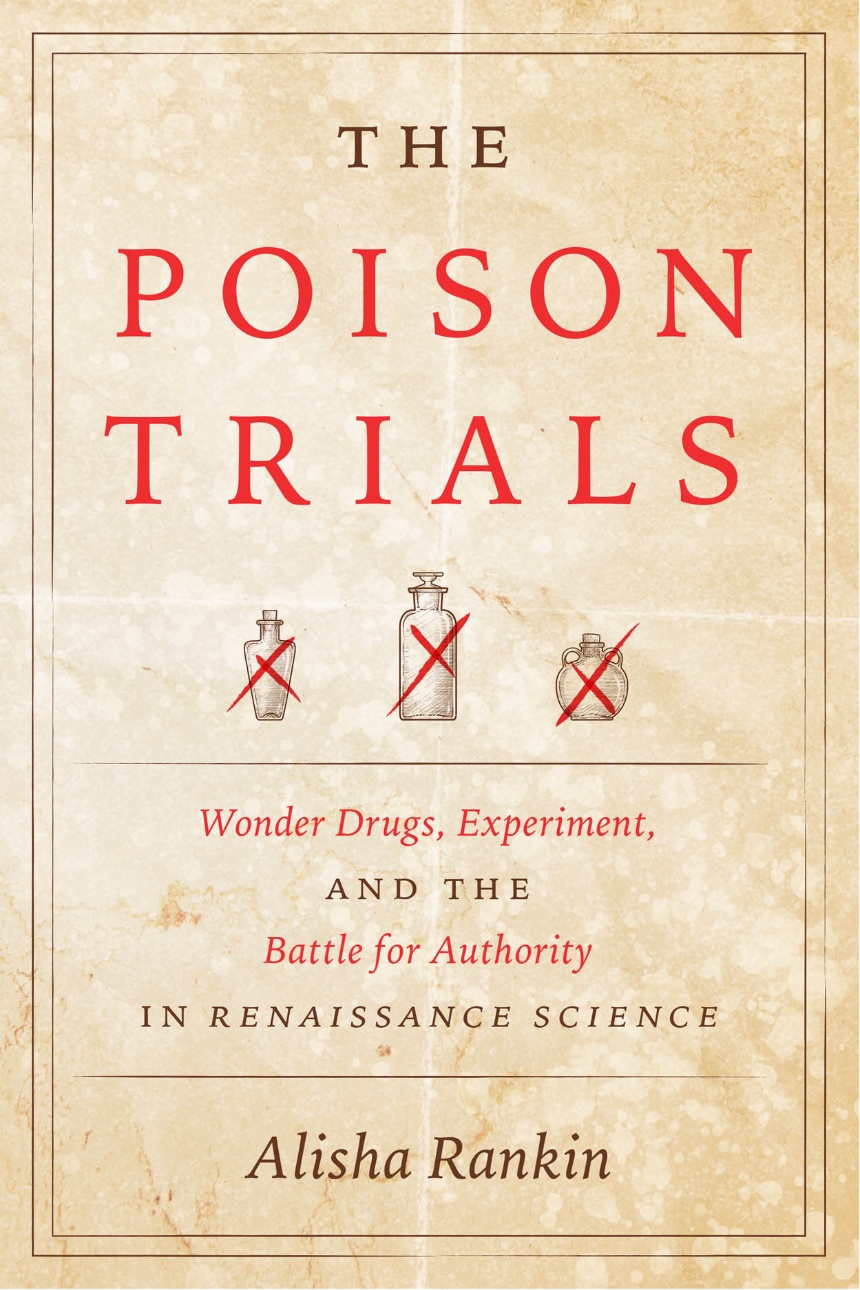The Poison Trials
Wonder Drugs, Experiment, and the Battle for Authority in Renaissance Science
9780226744858
9780226744711
9780226744995
The Poison Trials
Wonder Drugs, Experiment, and the Battle for Authority in Renaissance Science
In 1524, Pope Clement VII gave two condemned criminals to his physician to test a promising new antidote. After each convict ate a marzipan cake poisoned with deadly aconite, one of them received the antidote, and lived—the other died in agony. In sixteenth-century Europe, this and more than a dozen other accounts of poison trials were committed to writing. Alisha Rankin tells their little-known story.
At a time when poison was widely feared, the urgent need for effective cures provoked intense excitement about new drugs. As doctors created, performed, and evaluated poison trials, they devoted careful attention to method, wrote detailed experimental reports, and engaged with the problem of using human subjects for fatal tests. In reconstructing this history, Rankin reveals how the antidote trials generated extensive engagement with “experimental thinking” long before the great experimental boom of the seventeenth century and investigates how competition with lower-class healers spurred on this trend.
The Poison Trials sheds welcome and timely light on the intertwined nature of medical innovations, professional rivalries, and political power.
At a time when poison was widely feared, the urgent need for effective cures provoked intense excitement about new drugs. As doctors created, performed, and evaluated poison trials, they devoted careful attention to method, wrote detailed experimental reports, and engaged with the problem of using human subjects for fatal tests. In reconstructing this history, Rankin reveals how the antidote trials generated extensive engagement with “experimental thinking” long before the great experimental boom of the seventeenth century and investigates how competition with lower-class healers spurred on this trend.
The Poison Trials sheds welcome and timely light on the intertwined nature of medical innovations, professional rivalries, and political power.
Reviews
Table of Contents
Introduction: Caravita’s Oil
Part One: Authorities
1. Poison on Trial: Theriac
2. Condemned Bodies: Oleum Clementis
Part Two: Experiments
3. Experimenting with Drugs: Mattioli’s Scorpion Oil
4. To Cure a Thief: Silesian Terra Sigillata
Part Three: Wonder Drugs
5. Powerful and Artful Substances: Bezoar Stone
6. A Universal Cure: The Panacea Amwaldina
Conclusion: Testing and Testimony: Orviétan
Part One: Authorities
1. Poison on Trial: Theriac
2. Condemned Bodies: Oleum Clementis
Part Two: Experiments
3. Experimenting with Drugs: Mattioli’s Scorpion Oil
4. To Cure a Thief: Silesian Terra Sigillata
Part Three: Wonder Drugs
5. Powerful and Artful Substances: Bezoar Stone
6. A Universal Cure: The Panacea Amwaldina
Conclusion: Testing and Testimony: Orviétan
Acknowledgments
Notes
Bibliography
Index
Notes
Bibliography
Index
